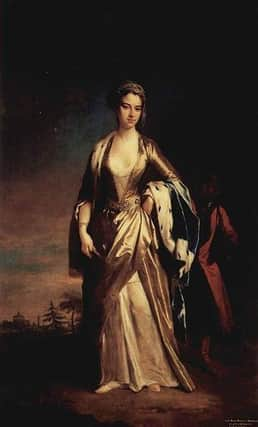Doctor’s Casebook, by Dr Keith Souter – Pioneer of immunology Lady Mary Wortley Montagu


Further trials should answer important questions about its efficacy in the real world and whether it does indeed confer immunity against the virus.
The discovery of vaccination has been one of the greatest advances in the history of medicine. A few weeks ago I wrote about Dr Edward Jenner’s discovery of smallpox vaccination, so this week I want to focus on Lady Mary Wortley Montagu (no ‘e’) a relatively unsung heroine in the history of immunology.
Advertisement
Hide AdAdvertisement
Hide AdAt Wentworth Castle in South Yorkshire, a National Trust property there is an impressive tall obelisk, framed by an avenue of trees. It is dedicated to Lady Mary Wortley-Montagu (1689-1763), for introducing smallpox inoculation to England from Turkey. Lady Mary was a writer, poet and adventurer. As the wife of the British Ambassador to Turkey she lived in Constantinople, modern day Istanbul. Her husband was an unremarkable ambassador and it is alleged that she would have been more successful in the post. She learned Turkish by infiltrating the harem of Sultan Ahmed lll and learned about all of the political machinations behind the scenes, which were hidden from her husband. While living there she heard about a process called variolation that had been used in China since the 10th century AD, and which merchants brought back to Turkey. It was in effect a primitive form of vaccination against smallpox. It involved exposing healthy non-infected people to the scabs of people who had smallpox. These were either put under the skin or powdered and inhaled up the nose like snuff. Variolation certainly seemed to protect against smallpox albeit, it was not completely safe. She had her six-year-old son variolated and was so convinced of its efficacy that back in England in 1717 she persuaded the authorities to permit a hazardous and unethical experiment. A group of convicted prisoners and orphaned children were given variolation and a few months later were deliberately exposed to smallpox. None of them contracted the disease and the procedure was deemed to be safe. Several members of the royal family were inoculated, the result being that variolation became fashionable. It gave some protection until 1796 when Dr Jenner discovered vaccination.